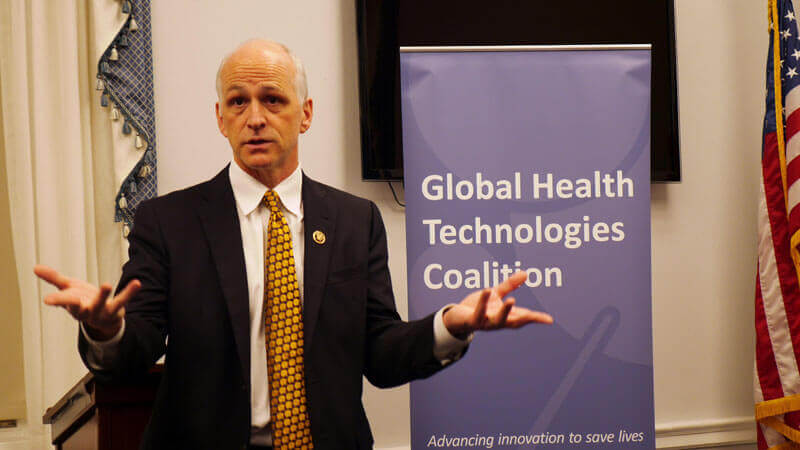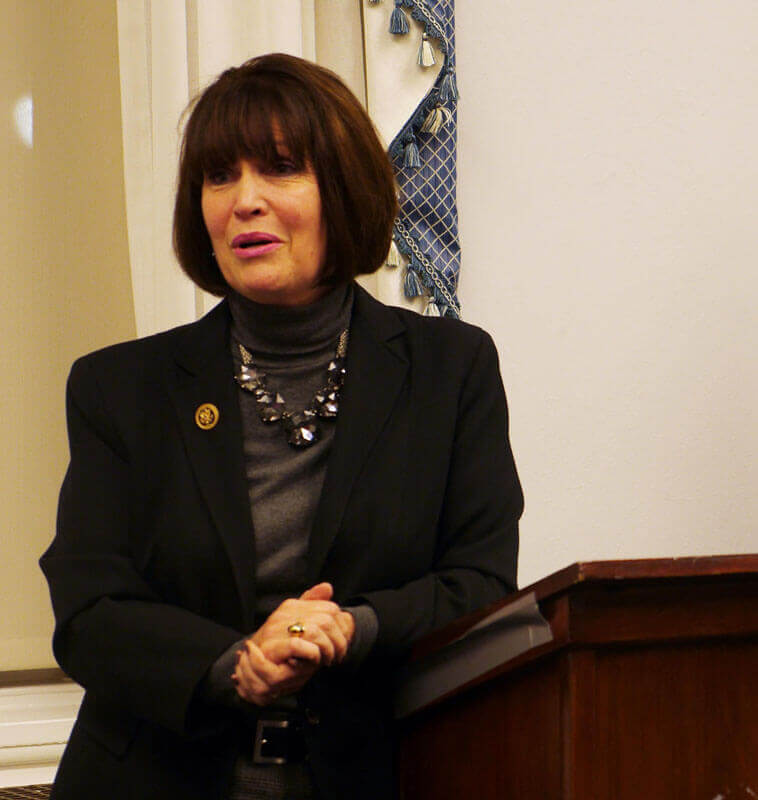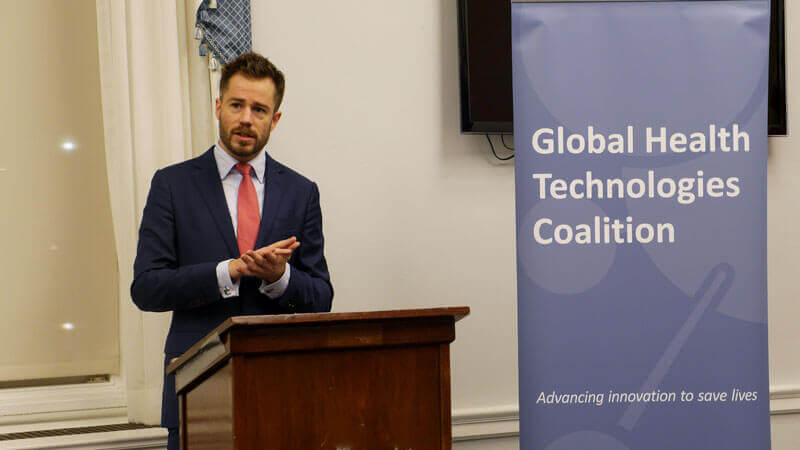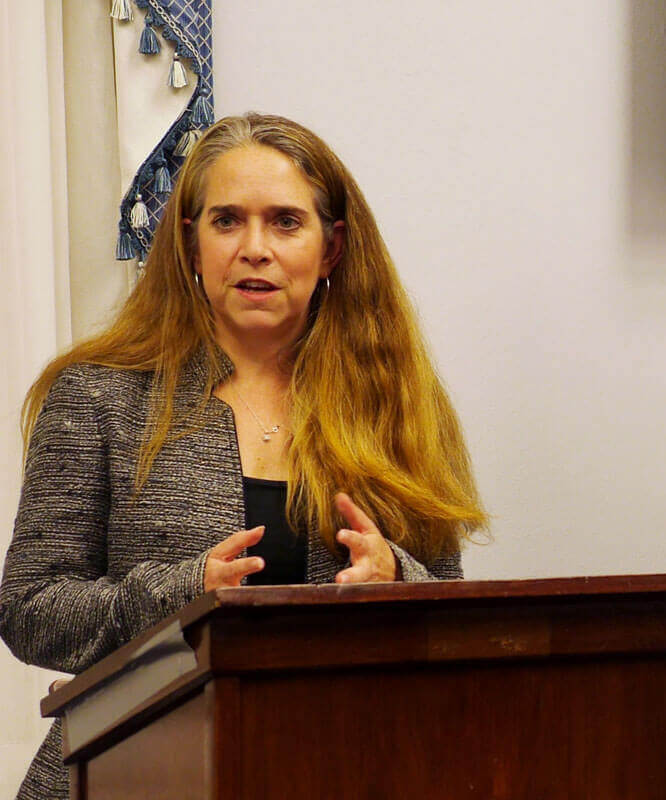On Wednesday evening, GHTC was joined on Capitol Hill by congressional champions—Congressman Adam Smith (WA-9) and Congresswoman Betty McCollum
(MN-4)—and global health community members for a reception celebrating US leadership in global health research and development (R&D)
and the launch of the 2015 G-FINDER report, which tracks investment in neglected disease R&D.
A message repeated throughout the evening was that the United States’ world-leading investment in global health R&D has been critical to catalyzing
the development of technologies that have driven enormous health gains worldwide.
 Congressman Adam Smith (WA-9) speaks at GHTC briefing. Photo: GHTC/Marissa Chmiola
Congressman Adam Smith (WA-9) speaks at GHTC briefing. Photo: GHTC/Marissa Chmiola
Congressman Smith opened his remarks by noting that the evening should be about celebration, citing the incredible, but often overlooked progress
made in global health over the past several decades—progress driven in part by advancements in the development of new vaccines, drugs, and
other health technologies. Yet, he also spoke to the critical need to sustain US investments in health R&D to further accelerate these gains.
The Congressman pointed out that US global health R&D investments not only benefit people in the world’s poorest places, but can lead to new
insights and innovations that improve access to care for people here in the United States.
 Congresswoman Betty McCollum (MN-9). Photo: GHTC/Marissa Chmiola
Congresswoman Betty McCollum (MN-9). Photo: GHTC/Marissa Chmiola
Congresswoman McCollum emphasized that global health is a bipartisan issue in Congress. “Every member of Congress knows no child should die of a vaccine
preventable disease,” she said. The Congresswoman noted that global health is a foundational element on which all other development gains are built.
Discussing her own experience as a mother and grandmother, she talked about the universal desire shared by parents in all parts of the world to
see their children survive and thrive, and the role the US government can play in helping make that possible through innovation.
In anticipation of the launch of the G-FINDER report the following day, Dr. Nick Chapman, director of research at Policy Cures and the report’s lead
author, previewed key findings from this year’s report. The report found that funding for neglected disease R&D increased in 2014, but that
increase was entirely the result of increases in funding for Ebola R&D in response to the West African Ebola crisis. Non-Ebola R&D funding
actually decreased slightly from the previous calendar year.
 Dr. Nick Chapman of policy cures previews findings from the report. Photo: GHTC/Marissa Chmiola
Dr. Nick Chapman of policy cures previews findings from the report. Photo: GHTC/Marissa Chmiola
Dr. Chapman also emphasized the critical role the US plays in neglected disease R&D, noting that the “US government is the single most important
funder of global health R&D.” This year’s report found that the US government was responsible for 71 percent of all investment in neglected
disease R&D. While Dr. Chapman said this leadership should be celebrated, he also noted that US investment has largely been on the decline
over the last several years with non-Ebola R&D investment declining in 2014 to the lowest level since the survey began in 2007. Given the US’s
dominant role in this area, continued cuts or stagnation in US funding could lead to significant detrimental impacts on neglected disease R&D
overall.
 Wendy Taylor, director of the USAID Center for Accelerating Innovation and Impact. Photo: GHTC/Marissa Chmiola
Wendy Taylor, director of the USAID Center for Accelerating Innovation and Impact. Photo: GHTC/Marissa Chmiola
Wendy Taylor, director of the Center for Accelerating Innovation and Impact at the US Agency for International Development (USAID) echoed statements
from other speakers on the need to sustain health R&D investment, emphasizing that the gains we are seeing now in global health are the result
of investments made decades ago. She highlighted the importance of partnerships in advancing product development, citing USAID’s work with the
private sector and product development partnerships, and the importance of sourcing innovative ideas from all over, highlighting success stories
from USAID’s Saving Lives at Birth Grand Challenge Program.




